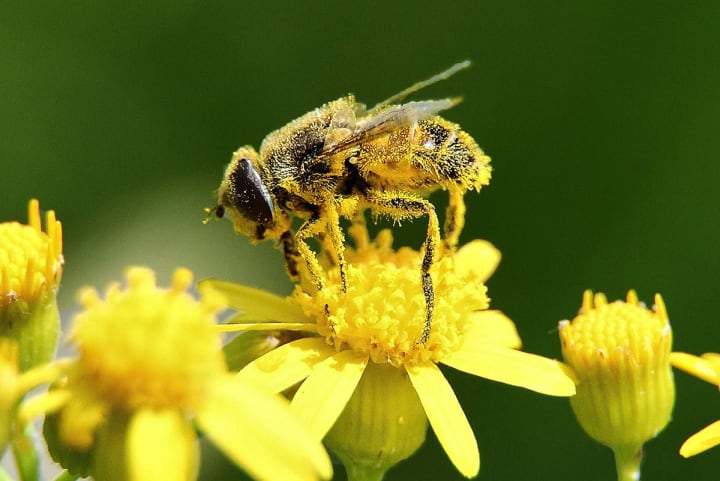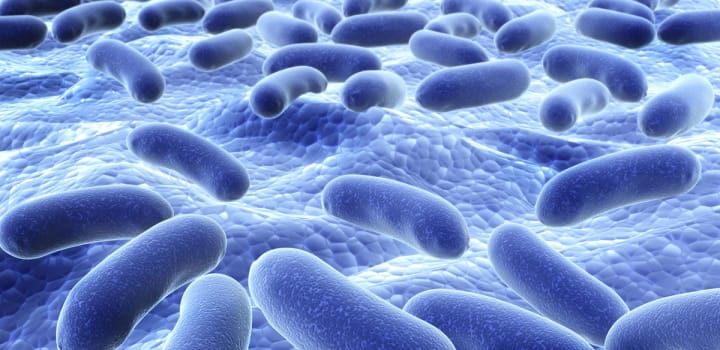Best Natural Allergy Relief Remedies
Save yourself from seasons of stuffiness with the best natural allergy relief remedies.

Whether you have fall, summer, or indoor allergies, or any combination of the above, the symptoms can be a terrible mood killer. Summer allergies can leave you suffering for the majority of the nice months, and fall allergies can keep you from enjoying nature's beauty during the cooler months. Allergy pills and syrups can leave you hazy and are just another set of chemicals that we're pumping into our bodies. Instead, try a more natural remedy for your battle with mother nature. The best natural allergy relief remedies can keep you alert and comfortable without any of those nasty side effects.
Nettle Tea

Nettle is an all-around anti-inflammatory, meaning that it has been studied extensively for its health applications. These studies revealed that it is particularly effective as a natural allergy remedy, and that it relieves almost all allergy symptoms (including itchy and watery eyes, sneezing, and runny nose). This relief is provided by the nettle leaf, which has different health benefits than nettle root. When handled carefully, nettle leaves can be brewed into a tea that alleviates allergies and a wide array of other symptoms.
Nettle also comes with a variety of other health benefits. In studies comparing it to prescription furosemide, nettle was more effective at reducing blood pressure and as a diuretic. It is also known to produce a pain-relieving and a sedative effect. The plant is also used to boost immune system function as a whole, and as a hair and scalp treatment (be particularly careful with this one, as it is a stinging plant after all). Its extract can also be used as remedies for UTIs and respiratory infections. Overall, prolonged regular use of nettle leaf is not recommended, but it is a great treatment for acute symptoms, such as severe allergies.
You can buy nettle leaf tea online, which is the easier but more costly way to use this natural allergy treatment. If you're brave enough to try it, you can also harvest nettles and make your own tea.
Tip #1: Be 100 percent sure that what you are harvesting is nettle! The dark green, opposite leaves are a few inches long, with a rough, papery texture, and very coarse teeth. The leaf tip is pointed, and its base is heart-shaped.
You must harvest them very carefully. Wear gloves, a long-sleeved shirt and long pants when harvesting nettles. Use garden clippers (scissors will work if you don't have clippers) to cut the top two bracts of leaves, leaving the rest of the plant to regenerate. About a cup of fresh leaves is enough for one to two cups of tea.
Once you have collected the nettle leaves, brewing tea is the easy part. Add about two cups of water per a cup of leaves and heat to a near boil. Steep longer for stronger tea, or add extra water for weaker tea. Once the water nears boiling point, reduce the heat and simmer for a few minutes. Pour your tea through a small strainer and enjoy!
Bee Pollen/Local Honey

While most don't consider bee pollen a food, it's actually one of nature's greatest superfoods. It is high in protein and other antioxidants, and can greatly reduce symptoms of allergies. Bee pollen reduces histamine, which is the same way that over-the-counter allergy medications work to reduce reactions.
The best way to make sure that the bee pollen you choose will help you build an immunity to local plants is to buy local bee pollen. Looking for bottles with a variety of colors will ensure that the pollen comes from different plants. This will ensure that the pollen has an optimum nutrient profile.
Bee pollen comes in poll, powder, and liquid form. However, the actual granules the bees make is the most effective form of consumption. They can be used in smoothies, oatmeal, yogurt, or granola for easy additions to meals, and their sweet taste complements any of these dishes.
It's best to build up your dosage, starting with approximately half a teaspoon a day and working up to three tablespoons over the course of four weeks or so.
An important note: Do NOT take bee pollen if you have a history of bee sting allergies.
Essential Oils

Essential oils can both boost the immune system to prevent allergies overall and treat the symptoms of allergies when you are suffering symptoms. They do the later by fighting inflammation and helping detoxify the body.
A few cautionary notes: tea tree oil is best used aromatically or topically, it is one essential oil that is not recommended for consumption. If you have sensitive skin, dilute topical oils with carrier oil. When using essential oils internally, a little goes a long way. Only take one or two drops a day for one month. Then take a two-week break and start the treatment again.
Probiotics

Ingesting probiotics can help boost the immune system and maintain a healthy internal ecosystem. Because of this, researchers believe that consuming probiotics can encourage the production of antibodies in children that will protect them from developing allergies. Studies include both administering probiotics to children and to expecting mothers.
Probiotics have been proven effective in the remedy of:
- Birch pollen allergy in children
- Cedar pollen allergy in adults
- Eczema in infants and children
In addition to remedying these allergies, probiotics can:
- Improve function of the mucosal lining of the intestines
- Hinder growth of pathogenic bacteria
- Stimulate the production of immune enhancing substances
- Improve immune response
Probiotics can be found in capsule form or in many different foods, including yogurt.
Apple Cider Vinegar

An old folk-remedy claimed that fermented liquid was a cure for allergies. Today, studies have shown that this is largely true, and that consuming apple cider vinegar is perhaps the most effective allergy treatment available today.
Apple cider vinegar fights allergy symptoms by heading off your body's response to allergens and preventing the production and release of histamines. Unpasteurized, unfiltered, and unrefined apple cider vinegar is most effective on this front, so make sure you look for this when purchasing.
Many recommend taking one teaspoon of apple cider vinegar mixed with water three times a day, but taking it as a straight shot in the same amount is also effective.
If the taste bothers you too much or the mixture upsets your stomach, you could also inhale the vapors. This will open your nasal passages and calm allergic reactions.
Butterbur

Butterbur is a marsh plant that's been used for medicinal purposes for ages. It grows throughout Europe and in certain parts of Asia and North America. Studies show that butterbur, administered as an oil extract or in pill form, can be used to treat nasal allergies effectively.
Butterbur acts similarly to an Leukotriene inhibitor, or LT inhibitor, in that it blocks leukotriene to prevent or relieve allergic reactions.
Unprocessed butterbur contains chemicals called pyrrolizidine alkaloids (PAs), which can cause liver damage and other illnesses. However, PA-free butterbur products are safe and effective in allergy treatment.
Spirulina

Spirulina is a blue-green algae which is known as a superfood and immune booster. Studies have shown that spirulina can significantly improve the symptoms of nasal allergies. Consuming 1,000 mg to 2,000 mg of spirulina daily for twelve weeks shows significant improvement in such symptoms. It achieves this by inhibiting histamines being released in the body and strengthening the immune system.
About the Creator
Chelsea Lynne
Enthusiastic bunny lover. Member of Diet Coke anonymous. Still trying to figure out what Type B means.






Comments (1)
Saving this information 😍 would love to not take Zyrtec so often